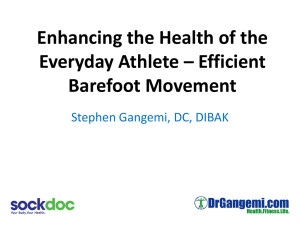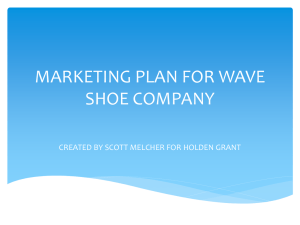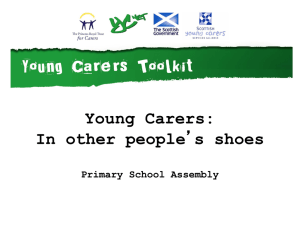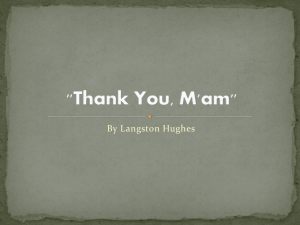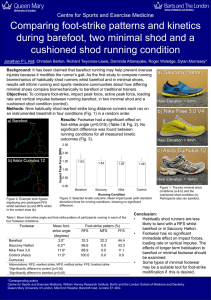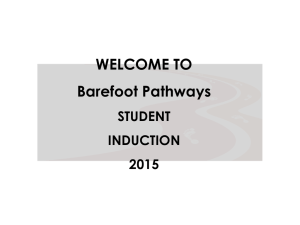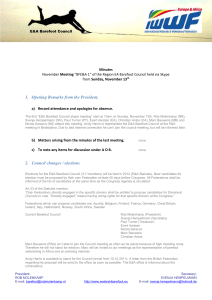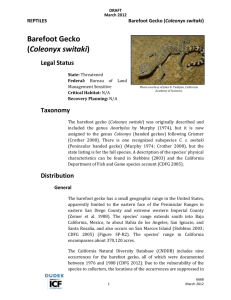Science Fair Project
advertisement
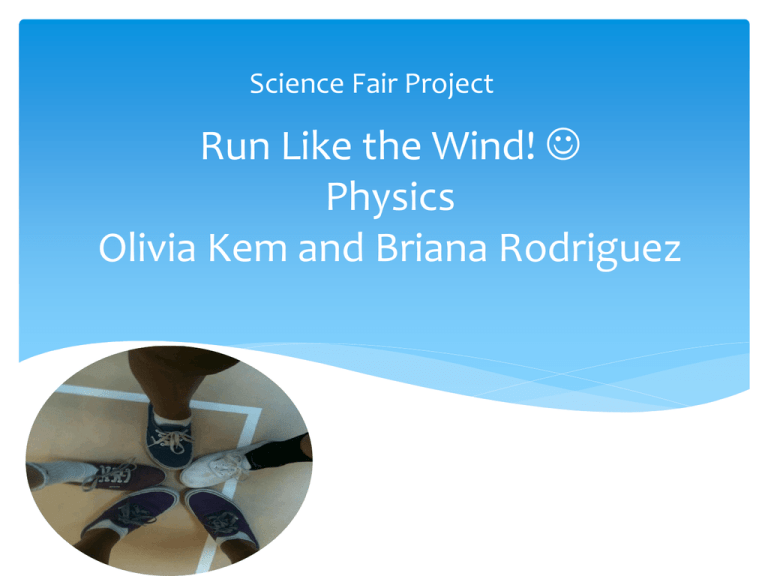
Science Fair Project Run Like the Wind! Physics Olivia Kem and Briana Rodriguez Statement of the Problem How does running with shoes on affect running speeds compared to being barefoot? Project Overview We wanted to know if people can run faster with shoes on or barefoot. We did some research and people said that you can have less injuries having no shoes on, but never said you can run faster. So, we did an experiment and had five girls run, and we timed them with shoes and barefoot. Research on Topic! - The Indians of the Tarahumara Tribe were great runners and they ran barefoot. - Prevents injuries - Humans were born to have the endurance to run barefoot. - You land on the heel of your foot when you run with shoes on, but you land on the toes run barefoot. - Some people say that with the right training, you can actually run faster barefoot. Variables Independent variable: Shoes on /shoes off Dependent variable: Speed Constant variables: Same shoes, height, weight, distance, location, and clothing. Control group: The times ran with shoes on. Hypothesis Our hypothesis was if a person runs barefoot then they will run faster than with shoes on. Materials Measuring tape Scale Meter Stick Vans Sophies/ Spandex Timer Camera Socks Procedure 1. Make sure every subject has the same shoes on (vans). Collect data on the test subject. 2. go to the gym and measure out 30 meters with measuring tape. 3. get any hazards out of the way. 4. make the course that will be run. 5. stretch for about five minutes ( flamingo stretch, stretched hamstrings, stretched arms). 6. test subject 1 will run barefoot. 7. then the next subject record time until all have gone. Procedure 8. after running, everybody take a five minute break and drink water. 9. subjects will record their times in the same order again barefoot. 10. another five minute break and get water. 11. then the subjects will run in the same order, but with shoes on for the first time. 12. another five minute break and get water. Procedure 13. the subjects will run in the same order for the second time with shoes on and record time. 14. graph the subjects’ times . Pix! Run like the Wind Sub 5 T e s t S u b j e c t s Sub 4 S Sub 3 B Sub 2 Sub 1 4 4.5 Seconds 5 5.5 6 6.5 7 Conclusion Our hypothesis was proved correct! All our subjects ran faster barefoot opposed to running with shoes on. Possible Experimental Errors Possible errors: Started/stopped the timer at the wrong time. Didn’t run at full speed. Slipped on the floor. Wrote down the wrong time Applications and Recommendations If someone else were to do this experiment, they should make their distance longer! It was such a short distance it could have just been luck that they ran faster! Also, they should get more people to help them! If you have more people, you have more data to make a conclusion with!!! Works Cited "10 Reasons You Should Start Running Barefoot." The Personal Excellence Blog. June-July 2010. Web. 12 May 2011. <http://celestinechua.com/blog/10-reasonsto-go-barefoot-running/>. "Runing- No Shoes!" Enzine Articals. Oct.-Nov. 2010. Web. 12 May 2011. <http://ezinearticles.com/?Why-Barefoot-Running-Helps-You-Run-Faster-andGet-Injured-Less&id=3352155>. Burfoot, Amby. "The Barefoot Running Debate at Runner's World." Runner's World: Running Shoes, Marathon Training, Racing. Mar.-Apr. 2009. Web. 12 May 2011. <http://www.runnersworld.com/article/0,7120,s6-238-267--13401-21X2-3,00.html>. "Barefoot Running Research and More." Strength Running — Injury Prevention and Training Tips to Race Faster. Spring 2010. Web. 12 May 2011. <http://strengthrunning.com/2010/08/barefoot-running-research/>.
